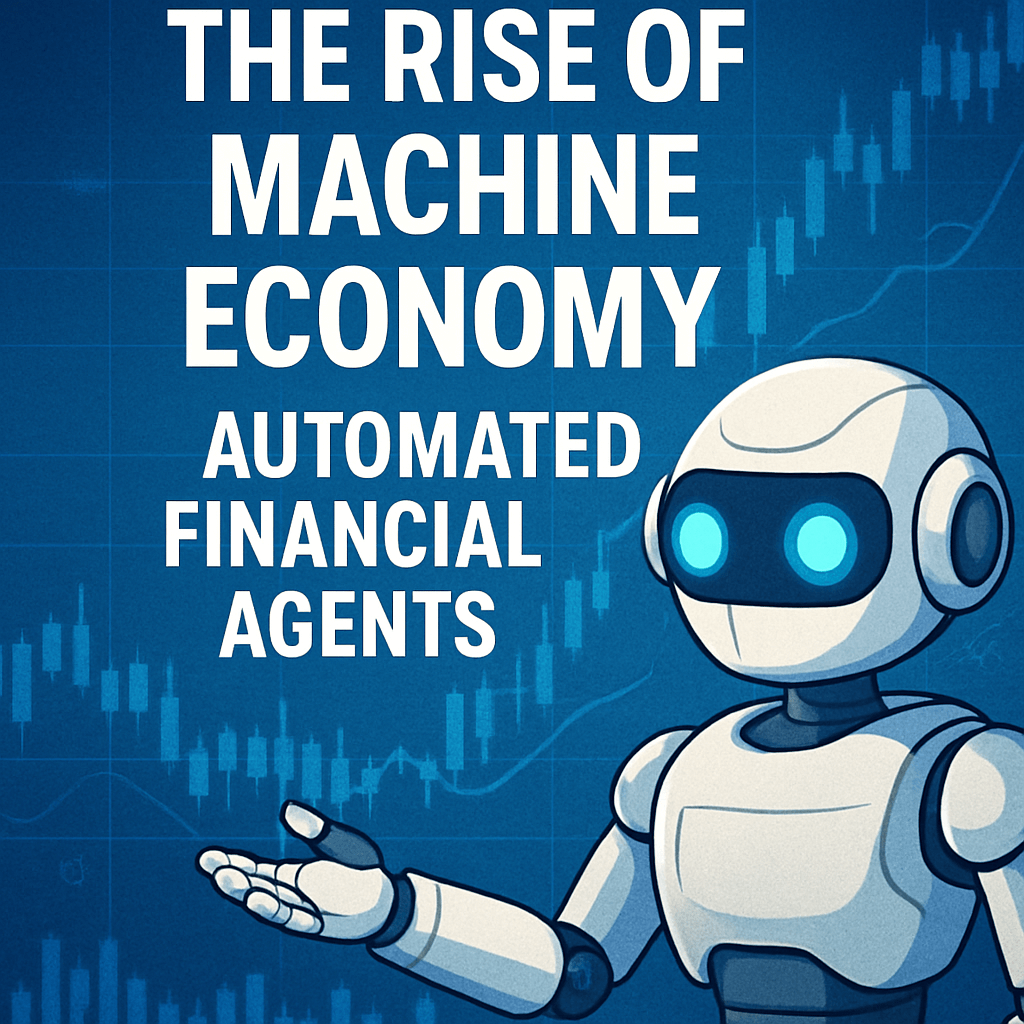The Rise of Machine Economy: Automated Financial Agents


In recent years, autonomous delivery robots have significantly transformed from mere tools for logistics into active economic actors. These robots, equipped with sophisticated artificial intelligence, now possess digital wallets, allowing them to negotiate, earn, and spend funds autonomously in real-time. This evolution marks a critical shift in how we perceive automation and its role within the economy.
Understanding the Machine Economy
The term machine economy refers to a system where machines and algorithms operate as independent economic agents. This development is underpinned by advancements in blockchain technology and AI, facilitating the creation of smart contracts that enable seamless transactions without human intervention. The implications are vast, affecting supply chains, retail, and services.
Autonomous Agents: From Tools to Economic Participants
Initially designed as delivery tools, robots have undergone a transformation. Today, these intelligent agents can engage in negotiations, leveraging machine learning algorithms to optimize routes and payment processes. For instance, a robot delivering packages can now negotiate shipping rates or secure payment for its services, fundamentally changing the logistics landscape.
Technological Infrastructure
- Blockchain Technology: Decentralized ledgers enhance transparency and security in transactions. Robots can store value and execute contracts automatically using Ethereum or similar platforms.
- Machine Learning: AI enables robots to learn from past interactions, improving negotiating capabilities and operational efficiency.
- Smart Contracts: These self-executing contracts are encoded on a blockchain and facilitate automated transactions based on preset conditions, streamlining processes like payment to the robots for services rendered.
Economic Implications
The integration of robots as economic agents raises numerous questions regarding labor, regulation, and competition.
- Labor Displacement: As robots increasingly take over tasks traditionally performed by humans, we may witness a transition in the job landscape, necessitating reskilling and adaptation among the workforce.
- Regulatory Challenges: The rise of autonomous economic agents necessitates new regulations to address liability, ownership, and taxation of transactions conducted by bots.
- Competitive Dynamics: Businesses leveraging robotic agents may gain substantial advantages in speed and cost-efficiency, prompting a shift in market dynamics.
Current Developments in the Field
Recent reports suggest an uptick in investment in robotics and AI-enable software, driven by both venture capital and corporate investments. Major technology firms are increasing their R&D budgets to further enhance cognitive functions within machines, hence accelerating the adoption of autonomous systems across various sectors.
Particularly, start-ups like Nuro and Starship Technologies are pioneering developments in last-mile delivery solutions, exhibiting how these bots can transact autonomously. As of late 2023, cities across the globe are initiating pilot projects to explore the use of autonomous delivery robots in urban environments, further bridging the gap between traditional commerce and the emerging machine economy.
Conclusion
The advent of a machine economy where bots have their own wallets signifies not just a technological advancement, but also a paradigm shift in economic interactions. As these autonomous agents continue to evolve, they will increasingly redefine roles within the economy, requiring stakeholders to rethink how we approach workforce, regulations, and market strategies.
“The future will challenge our understanding of agency and economic participation, as machines become integral to our financial ecosystems.” — Dr. Sarah Lynn, AI and Economics Expert